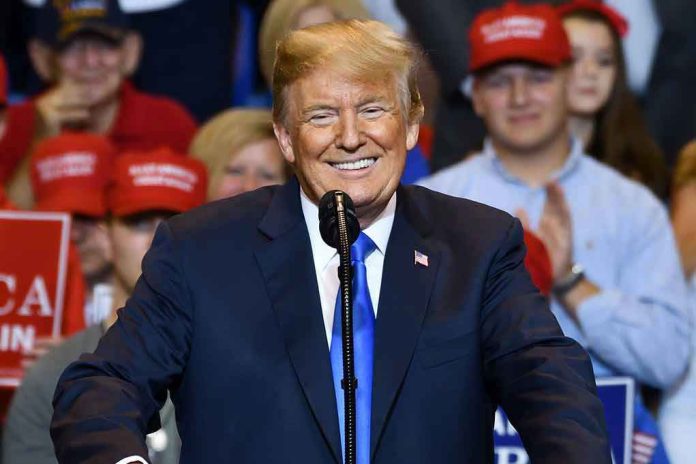
Crowds in Tel Aviv cheered President Trump and booed Israeli Prime Minister Netanyahu at a hostage rally, signaling a dramatic shift in global attitudes toward American leadership and conservative values.
Story Highlights
- Trump received enthusiastic support in Tel Aviv, while Netanyahu faced public disapproval at a major rally.
- The event underscores growing international recognition of Trump’s leadership style and America-first agenda.
- Public reaction in Israel reflects frustration with past globalist policies and a renewed focus on strong national sovereignty.
- The rally’s outcome signals a potential realignment of U.S.-Israel relations under Trump’s second term.
Global Perceptions Shift After Trump’s Return
At a recent hostage rally in Tel Aviv, thousands of Israelis voiced their approval for President Trump, breaking into cheers as his name was mentioned, while simultaneously booing their own Prime Minister, Benjamin Netanyahu. This rare moment, captured on video and widely shared, highlights a dramatic change in global attitudes. The rally, intended to support hostages and protest government actions, became a stage for expressing frustration with failed leadership and a longing for strong, decisive action—qualities Trump has promoted since his return to the White House.
The open support for Trump, contrasted with the palpable disdain for Netanyahu, reflects a global frustration with leaders perceived as weak or beholden to globalist interests. Over the past years, many in Israel and the U.S. have grown weary of policies that prioritize international consensus over national security and sovereignty. Trump’s America-first approach, which rejects “woke” cultural trends and pushes back against unchecked immigration, resonates not only with conservatives at home but increasingly with foreign populations seeking strong, principled governance.
America-First Values Resonate Abroad
Trump’s second term has been marked by a clear rejection of the previous administration’s globalist and leftist agendas. His administration has moved quickly to reinforce national borders, overhaul immigration policy, and restore law and order—principles that have been echoed by supporters abroad. In Israel, this is particularly significant as many citizens have watched their own government struggle with security crises, economic instability, and political infighting. Public displays of support for Trump underscore a belief that American strength and constitutional values can serve as a model for nations facing similar challenges.
These developments also highlight how family values, individual liberty, and a commitment to national interest are not just American concerns but have become rallying points for people worldwide. The Tel Aviv rally, with its cheers for Trump, demonstrates the broad appeal of policies that place citizens’ safety and prosperity above international approval or ideological experiments. Frustration with government overreach, leniency toward illegal immigration, and cultural trends that many view as corrosive to traditional values is fueling a new alignment among conservative-minded populations across nations.
Implications for U.S.-Israel Relations
The stark contrast in public sentiment toward Trump and Netanyahu may foreshadow changes in U.S.-Israel relations. Under Trump’s leadership, the United States is expected to prioritize national security, constitutional rights, and an unambiguous rejection of radical agendas. This approach stands in sharp contrast to the previous administration’s policies, which were often criticized for undermining border security and promoting divisive social agendas. The Tel Aviv rally’s outcome serves as a barometer for how closely Israel and other allies may align with the new American posture—one grounded in strength, common sense, and respect for sovereign borders.
While the rally in Israel was only one event, it captured widespread sentiment among those who feel left behind by globalist policies and unchecked government power. As Trump’s administration continues to implement changes at home and signal a recommitment to core conservative values, the world will be watching to see if this momentum grows. The cheers from Tel Aviv may be only the beginning of a broader realignment toward strong leadership, traditional values, and respect for national sovereignty—both in the United States and beyond.





